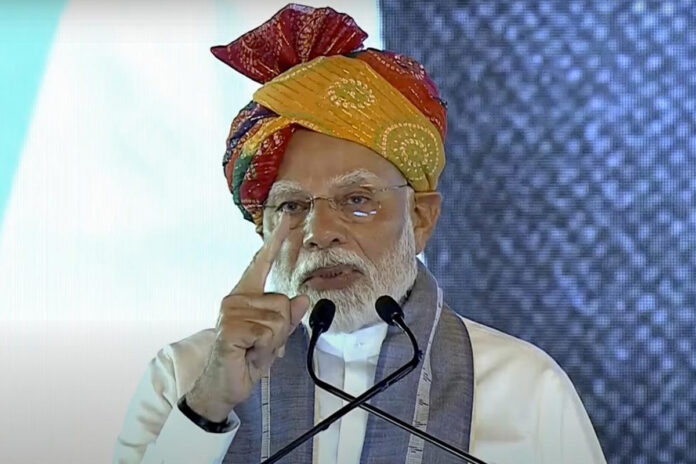New Delhi – During his visit to Hisar, Haryana, Prime Minister Narendra Modi inaugurated several development projects and, while addressing a public rally, hinted that the Uniform Civil Code (UCC) could be implemented after addressing the issue of the Waqf Act. This statement has sparked discussions suggesting that UCC might follow the Waqf-related reforms.
During his speech, Modi clarified his stance on the Waqf Act and strongly criticized the Congress party. He accused Congress of using the Constitution as a tool to gain power, stating that whenever the party felt its grip on power slipping, it manipulated constitutional values. According to Modi, the Constitution clearly advocates for a Uniform Civil Code for all citizens, which he referred to as a “secular civil code.” However, he claimed that Congress never implemented it and, in doing so, disrespected constitutional principles.
He highlighted that his government had implemented the Uniform Civil Code in Uttarakhand, yet Congress opposed it. Modi also pointed out that the Waqf Board holds lakhs of hectares of land, but these resources were never utilized properly to benefit the poor and the needy. He alleged that in 2013, Congress amended the Waqf Act to appease radical Muslim factions in an attempt to win elections, weakening the Constitution in the process.
Going further, PM Modi questioned Congress’s commitment to Muslims, asking why the party has never appointed a Muslim as its president or given half of its election tickets to Muslim candidates if it truly cared for them.
Modi also reminded the public of the Emergency period, accusing Congress of virtually burying the Constitution during that time. He reiterated that the core principle of the Constitution is equality under a common civil code, yet Congress never acted on it. Modi stated that while he is working toward that goal, Congress is opposing his efforts.
“Muslim youth are forced to survive by fixing punctures”: Modi
Modi’s remarks about the Waqf issue during the rally in Haryana stirred controversy. He claimed that many Muslim youth are compelled to earn a living by repairing cycle punctures, while vast land under Waqf remains underutilized. If that land had been honestly and properly used, Modi argued, those youths would not be living such difficult lives. He stressed that Waqf land should have been used for the welfare of the poor, helpless women, and Muslim children—but that didn’t happen. Honest use of that land could have transformed the condition of Muslim youth in the country.

